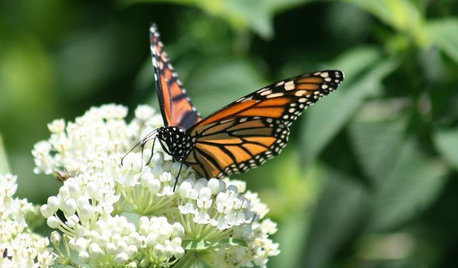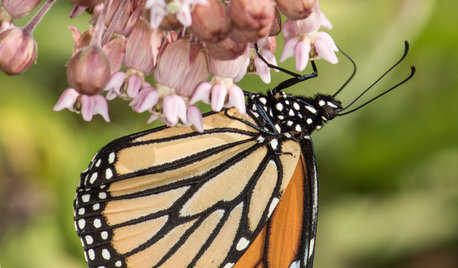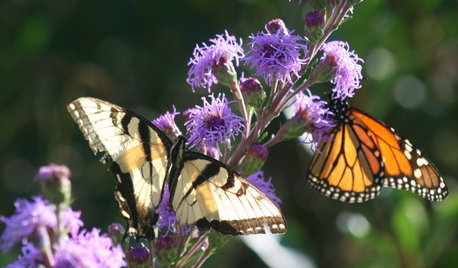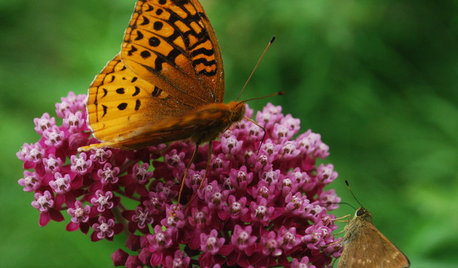13 Monarch Eggs!!!
docmom_gw
9 years ago
Related Stories

GARDENING FOR BUTTERFLIESBe a Butterfly Savior — Garden for the Monarchs
Keep hope, beauty and kindness alive in the landscape by providing a refuge for these threatened enchanters
Full Story
FLOWERS AND PLANTSHelp Monarchs and Other Butterflies by Planting Common Milkweed
Summer-blooming Asclepias syriaca is an important larval host plant for the monarch butterfly and attracts a number of pollinating insects
Full Story
FALL GARDENINGWhat Monarch Butterflies Taught Me About Garden Design
Thinking like a butterfly leads to fresh perspectives in the garden and in life
Full Story
GARDENING GUIDESHelp Fuel the Monarch Migration With These 6 Prairie Plants
Try these nectar-rich beauties and help autumn monarchs
Full Story
SHOP HOUZZShop Houzz: The Incredible Egg
Kick off your day with eggs and cheerful sunny-side-up accessories
Full Story0

GARDENING GUIDES13 Risks to Take for True Garden Rewards
Go ahead, be a rebel. Breaking rules in the garden can lead to more happiness, creativity and connection with the earth
Full Story
GARDENING GUIDESGreat Design Plant: Asclepias Incarnata for a Butterfly Garden
Beautiful swamp milkweed makes it easy to help monarchs and other pollinators in eastern U.S. gardens
Full Story
MOST POPULAR13 Upgrades to Make Over Your Outdoor Grill Area
Kick back on your patio or deck with a grill that focuses on fun as much as function
Full Story
KITCHEN DESIGNCooking With Character: 13 Personality-Packed Kitchens
Not a fan of sleek, modern kitchens? Then try these eclectic cooking spaces on for size
Full Story
MOST POPULARTrend Watch: 13 Kitchen Looks Expected to Be Big in 2015
3 designers share their thoughts on what looks, finishes and design elements will be on trend in the year ahead
Full StorySponsored
More Discussions




MissSherry
msmorningsong
Related Discussions
Monarch laying eggs already north of Chicago...!
Q
No Monarch eggs/cats yet this year
Q
32 additional monarch eggs and baby cats plus an unknown egg
Q
Monarch Eggs
Q
Ruth_MI
treehugger101
october17
docmom_gwOriginal Author
docmom_gwOriginal Author
docmom_gwOriginal Author
Kristy Asao
docmom_gwOriginal Author
msmorningsong
docmom_gwOriginal Author
Ruth_MI
BERGER123
docmom_gwOriginal Author
terrene
dbarron
Liz
docmom_gwOriginal Author